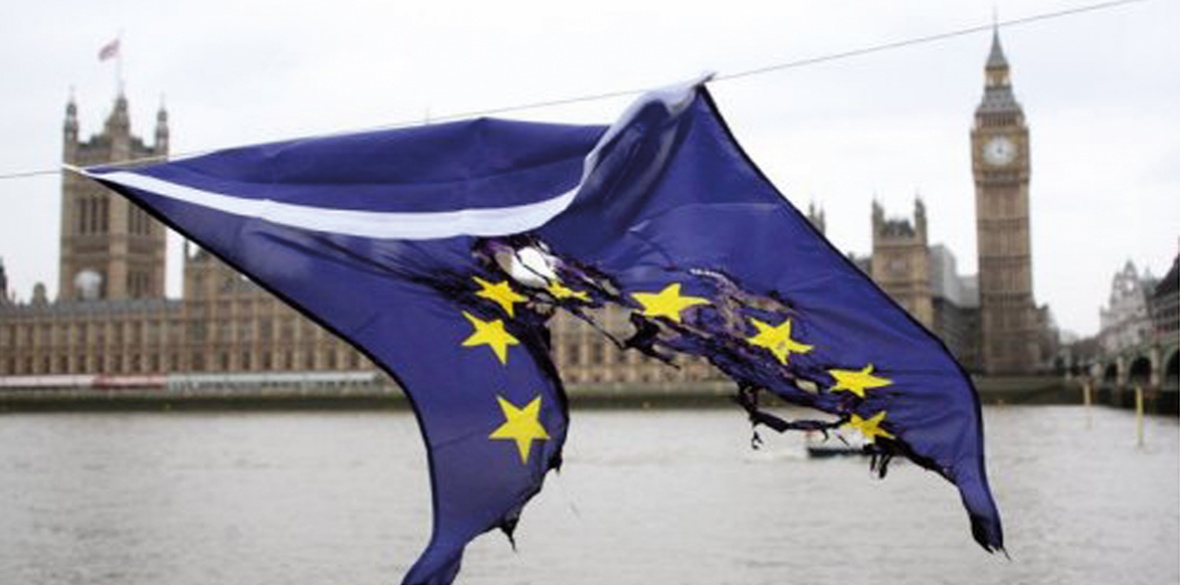This is the last article you can read this month
You can read more article this month
You can read more articles this month
Sorry your limit is up for this month
Reset on:
Please help support the Morning Star by subscribing here
THE 11th-hour negotiations on future trade arrangements with the EU are about several political agendas.
First and foremost, the EU wants to be seen to be playing very hardball with any country that dares to leave its exclusive club.
This is because more people and countries in the EU are becoming discontent with membership, especially as it so clearly restricts their ability to rebuild post-Covid.
To get EU support, countries have to impose greater austerity measures, as the EU is currently making clear to Spain.
Former eastern bloc countries like Poland and Hungary, with their bizarre turning against their own people, are increasingly unwelcome and unwilling EU participants.
So, says the deep state in Germany and France, are countries that cannot pay into the EU coffers, once topped up very generously by Britain as a big net contributor.
When Britain fully leaves, the EU’s already depleted vaults will be further reduced.
The scale of countries’ debts now, not just in the Mediterranean south, but in the core states, is such that the European Central Bank is gasping for breath.
It can’t go on printing money for ever and it will have less than its ever had to back anything up.
There are deep fault lines across the EU which are forcing it to seek to disadvantage Britain in order to protect its massive import penetration here and its completely unlevel playing field in fishing.
The EU’s bargaining position in the trade talks seeks to ignore the result of the referendum and keep us within the single market and retain access over our territorial waters.
In order to build back better after the pandemic, Britain will need to favour British-based manufacturing investment again and be able to procure from suppliers and manufacturers as we see fit.
It will need to co-ordinate across industries, services and utilities.
The EU wants us to offer all manufacturing and service procurement contracts on the European-wide market and to restrict our state aid as it currently does.
Furthermore it wants its loyal judicial servant the European Court of Justice (ECJ) to retain authority to judge in cases of dispute.
The ECJ decides only in favour of neoliberal free trade rules and is entirely pro-business and the larger EU corporations in all that it does.
From an environmental perspective, Britain needs to import less and make more goods that we need here.
We need urgently to improve diet and create more sustainable agricultural and fishing industries.
Greater self-reliance in all production is both socialist and green. The EU is trying to continue with its globalising, free trade agenda with German car corporations and French food and drink companies foremost in its mind.
Just-in-time production methods and the endless flow of goods backwards and forwards is hardly helping climate change.
The world is a big market and Britain is a net importer from one part of it in the EU.
While our markets and trading relations need to be truly global, our commitments to the planet and to the construction of a socialist economy need to be grounded in making, buying and selling as much as we can on this island and in the process create full employment.
For four years debates have been dominated by talk of trade — it’s time to start talking again about production.
Employing our skills and developing new ones to supply products we all need and high-tech infrastructure and communications systems is what is required.
Gearing agriculture and fishing to the domestic market and healthier eating and deploying all of the latest science in these areas would make a tremendous contribution to the planet and lifestyle.
The ability to invest and provide state aid to an integrated British economy — Scotland, Wales, England — with no region left behind, is greatly needed and cannot be achieved, as we know from experience, within the EU’s rules that have already put huge parts of our economy in the hands of German, French, Dutch and other corporations and sometimes state-backed entities.
How crazy is it that EU companies and state agencies can own British water, gas, electricity, fishing grounds, rail networks and food chains while the British people just pay higher prices for worse utilities, food and services?
To rub it in, the EU is proposing in the current talks flash fines and tariff increases where it sees fit if Britain transgresses EU sensitivities.
No to the EU’s uneven playing field.
Doug Nicholls is chair of Trade Unionists Against the EU.









